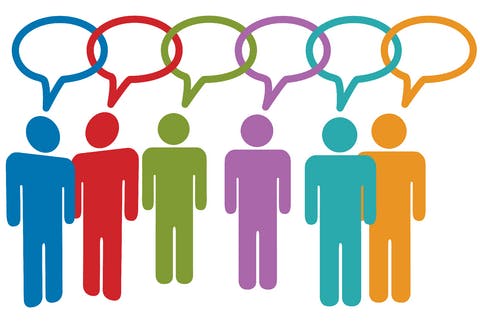By Lance Haun
When it comes to employee policies, I’m a minimalist. As a matter of principle, I follow three guidelines:
- Don’t make a policy because of one employee or department. Make policies that have widespread impact on the workforce.
- Don’t define something just to define something. For example, if you don’t actually need a dress code, don’t define one.
- And if you choose to make a policy, make it as succinct as possible. Eliminate confusion and ensure it can be read.
Social media policies have been on my mind lately as I have spoken to many HR folks in the past couple of weeks who are examining their own policies and wondering if they need a separate policy for social media. I have been listening to their concerns and given them resources (like a bunch of social media policy examples). I’ve been willing to be a sounding board for their ideas if they’ll listen to one thing I say: you don’t need a social media policy.
The Internet is simply a public space
The hardest part to accept for most folks is that social media isn’t a place unlike the real world. We imagine blogs or forums, Twitter or Facebook as these secluded places online and away from the real world. The problem is most of these places are public (or publicly accessible) places. Social media policies, at best, replicate current ways of dealing with employees who fall out of standards, and at worst, create strange double standards about how you treat people with an online presence versus those in real life. Let’s examine a few scenarios:
The time waster
An employee wastes countless hours chatting by the water cooler, taking early lunches and not getting their work accomplished. Another employee spends their time playing Farmville on Facebook, or chatting with friends on Twitter, and not getting their work accomplished. How would you treat these two employees differently?
The loud mouth
An employee takes the stage in front of an audience and spends the next hour bashing you, the company, and your clients. Another employee takes to Twitter to bash you, the company, and your clients. How would you treat these two employees differently?
The private booth
An employee and a group of his friends are at a bar when they are overheard by a friend of yours bashing the company and your employees. Another employee is bashing the company and your employees on their private Facebook account and a mutual friend alerts you to it. How would you treat these two employees differently?
The company secret
An employee is discovered to have revealed a company secret to a competitor when they were tipsy at an industry conference. Another employee was found posting a company secret to an online forum filled with competitors. How would you treat these two employees differently?
My point is that however you’d treat the employee in a similar real life situation is how you should treat them when it comes to social media. There are very few truly unique situations when it comes to social media and then it goes back to my point about not making policies for a handful of employees or possibilities. But your responsibility as an employer doesn’t end there.
Educate employees
One thing I never spent as much time on as an HR pro was education and it is something I regret. I don’t mean education as in “educating people about our policies.” I mean educating people on how to thrive in an organization. Teaching them effective use of social media would be one way to avoid the need for a separate policy. Sure, you can do well when it comes to employees misusing social media if you just apply a little real world sense into your decision-making process. But to thrive? That’s not accidental.
Some of those social media policies aren’t real policies at all. They are instead an education in social media best practices. Instead of saying “here are some rules to follow,” they suggest tips on how to best deal with aggravated customers online or how to help alert your PR or customer service team if there is a serious issue. They help people figure out when it’s best to engage or let someone vent. The more advanced ones talk about influence or how mistakes can be viral.
Let’s stop talking policy and start talking education for once.
